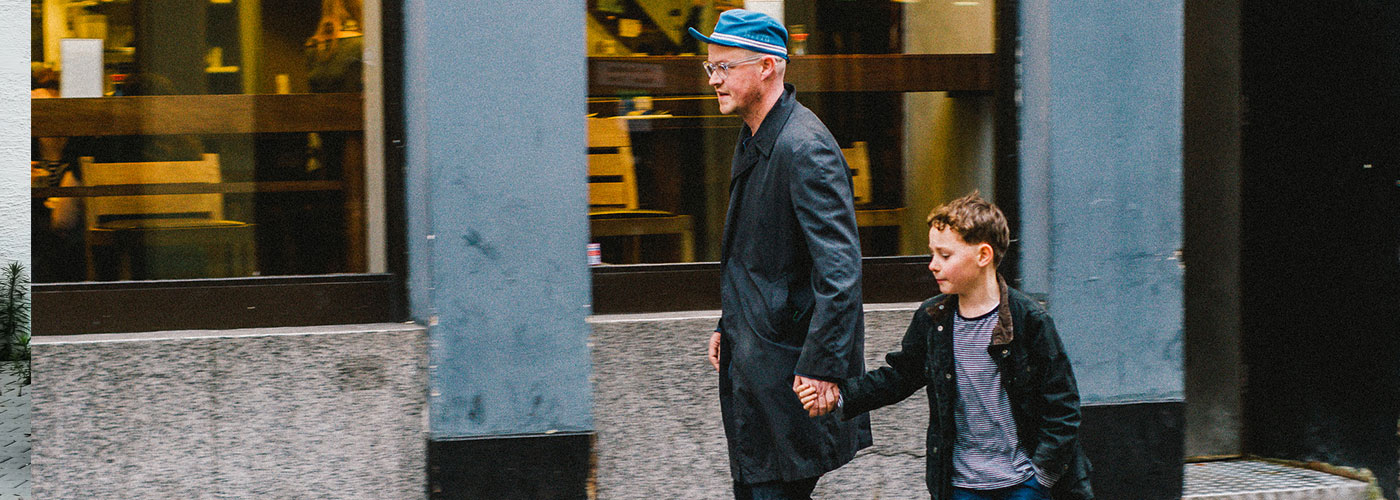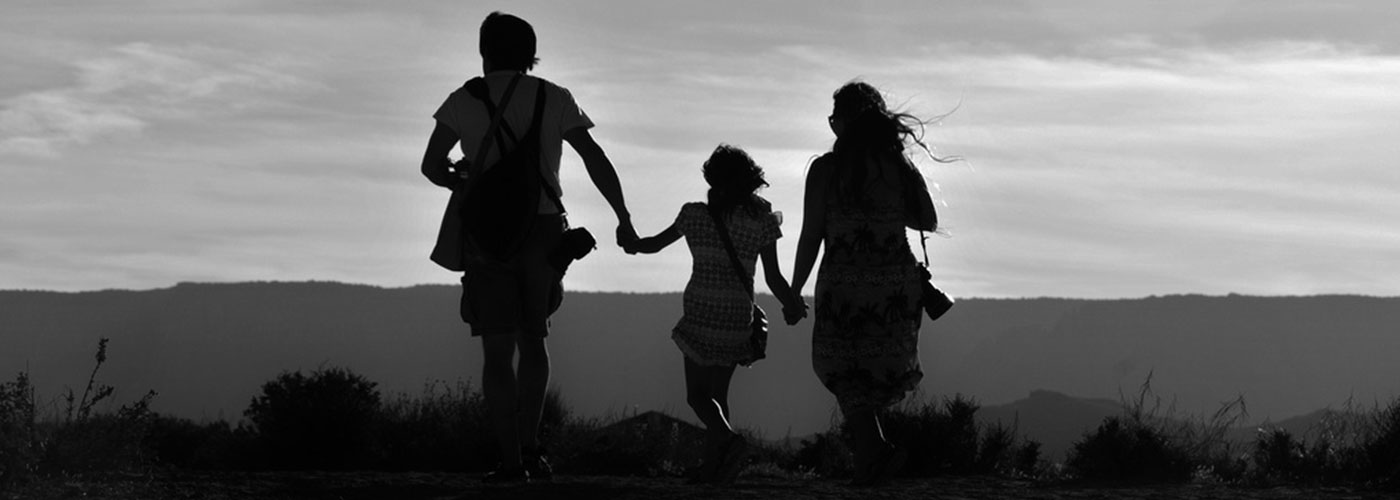Successful leaders must manage up (superiors), down (subordinates) and sideways (peers). Each group requires something different from you. Understanding family relationships helps you improve your relationships at work. This blog series explores the impact our relationship with our father has on how we build our business and life.
Commentary on Part Five – What Does ‘Being a Family’ Mean to You?
“We are family here at XYZ Corporation. We treat each other like family. We treat our customers like family, too.”
In him to whom love dwells, the whole world is but one family. -Buddha
We hear words like these frequently in the world of business. Tom Peters and Bob Waterman ushered in the “love they customer” movement in the 1980s with their mega-hit book, In Search of Excellence. Southwest Airlines CEO Herb Kelleher taught us all to “love thy employee” in the 1990s. The 2000s saw a rise in the importance of creating a family culture with workplace ‘family’ benefits for employees, followed closely by integrating customers’ ideas into as many processes as possible, such as product design.
So what does “being a family” mean in 2014? What lessons can we learn from home that impact how we act at work?
Several years ago tween Kristen Sibilia led a session for children of Social Venture Network members at our East Coast conference. She posed to the group a question she and older sister Kendra received from youngest sister, Kayla. Kayla asked, Why should I worry about you two and Mommy and Daddy? I just care about myself right now. That’s enough for me.”
I never forgot Kristen’s response: “You should care about your sisters and parents because when you care about your family, you have four people who care about you. You have four people worrying about you, finding ways to help you. Why have only one person [you] helping you through life when you can have four?”
We are inevitably our brother’s keeper as we are our brother’s brother. What affects one directly affects us all indirectly.
– Dr. Martin Luther King, Jr.
Kristen’s sentiment is expressed in two other stories I’d like to share. Each has a different perspective on family and what it means to “take care of others.” When I say that to reach your dreams you need to help others reach their dreams, what exactly does it mean to ‘help’?
The first story is told by Talmudic Rabbis. It attempts to explain why the Holy Temple in Jerusalem was built where it once stood:
Once there were two brothers who loved one another very much. The younger brother had a wife and four children. The older brother never married and lived alone. The brothers were poor farmers who worked hard and eked out a living on the field that their father had bequeathed equally to them. Each year at harvest time they divided the produce. Each took his share and stacked it outside his house.
To reach your dreams you need to help others reach their dreams: what exactly does it mean to help? Tweet This Quote
One night, the older brother awoke and was troubled. He thought, “How unfair of me to take half of the harvest. My brother has a wife and children to feed. I should give my brother a larger share of the harvest.” So, in the middle of the night, the older brother secretly carried part of his share of the harvest to his brother’s house. He placed it on top of what his brother had already stacked there.
The younger brother also awoke from his sleep troubled. He thought, “All these years, I have been equally dividing the harvest work with my brother. But I have been unfair. I have a wife and children to give me comfort, but he is alone. When I am old, my children will help take care of me. But he will be alone, with no one to support him.”
So, in the middle of the night, the younger brother secretly carried part of his share of the harvest and deposited it outside of his brother’s house with his brother’s share of the harvest.
Neither of the brothers knew what the other was doing, so each was amazed that despite his efforts to give part of his own share of the harvest to the other, his own share never seemed to be depleted. Each man continued to bring part of his share of the harvest to his brother during the night, constantly increasing the amount, and always being surprised that his own share never seemed to be diminished.
Finally, one night, the two brothers met. Each quickly understood what the other was doing. They embraced, kissed, and wept in love and joy. When God saw this, he decided to have the Holy Temple built on the exact spot where the brothers met that night.
The love we give away is the only love we keep.
– Elbert Hubbard
Tweet This Quote
Following a story akin to the famed O’Henry’s Gift of the Magi, I first encountered the second story (edited) in the 1690 book, The Memoirs of Gluckel of Hameln. I believe it is the only Jewish book from the Middle Ages written by a woman. It offers another perspective on relationships within a family and at work:
A father bird set out to cross a windy sea with his three fledglings. The sea was so wide and the wind so strong, the father bird was forced to carry his young, one by one, in his strong claws. When he was halfway across with the first fledgling the wind turned to a gale. He said, “My child, look how I am struggling and risking my life on your behalf. When you are grown up, will you do as much for me and provide for my old age?”
Relationships we have with others begin with the relationship we have with ourselves. Tweet This Quote
The fledgling replied, “Bring me to safety, and when you are old I shall do everything you ask of me.” In response, the father bird dropped his child into the sea where it drowned. “So shall it be done to such a liar as you,” he proclaimed.
Then the father bird returned to shore, set forth with his second fledgling. When asked the same question, receiving the same answer, he drowned the second child with the cry, “You, too, are a liar!”
Finally he set out with the third fledgling. When asked the same question, the last fledgling replied, “My dear father, it is true you are struggling mightily and risking your life on my behalf, and I shall be wrong not to repay you when you are old. But I cannot bind myself. This though I can promise: when I am grown up and have children of my own, I shall do as much for them as you have done for me.” The father bird carried him to safety.
When I think of my family, having watched my much younger siblings and many of the cousins since birth, I feel that the relationships we have with others begin with the relationship we have with ourselves. Given what you know about yourself, I ask:
What are you doing for other members of your family?
What are you doing for your colleagues at work?
We are all angels with one wing,
able to fly only when we embrace each other.
Tweet This Quote
Check out Mark’s series here:
- Book Part 1: Did I Do It for Him? What Drives Your Search for Success
- Commentary 1: Are you Chasing Someone Else’s Dream?
- Book Part 2: Can You See the World Through Another’s Eyes? What Drives Your Search for Success
- Commentary 2: Do You Focus on Your Needs or the Needs of Others?
- Book Part 3: Darkness or Light? What Drives Your Search for Success
- Commentary 3: Do You Judge or Love?
- Book Part 4: Did He Love Me? What Drives Your Search for Success
- Commentary 4: Have You Left Words Unsaid?
- Book Part 5: How Do You Act as A Family? What Drives Your Search for Success
- Commentary 5: What Does ‘Being a Family’ Mean to You?
- Book Part 6: Where Do Your Memories Meet Mine? What Drives Your Search for Success
- Commentary 6: Are You Looking for Questions or Answers?



